Are you curious about the spiritual meaning behind the iconic cockchafer beetle? Found throughout Europe and parts of Asia, these fascinating creatures have been closely associated with ancient folklore and superstition for centuries. Mythology tells us that when a cockchafer visits your property, it brings good luck to everyone there.
And while many consider them pests or just an annoyance, their symbolic importance must be treasured! In this blog post, we’ll explore the cockchafer spiritual meaning and why the cockchafer has such an important role in various cultures and beliefs worldwide. From its significance in religion to its use as a symbol of protection – you’ll learn everything there is to know about these magical beetles!
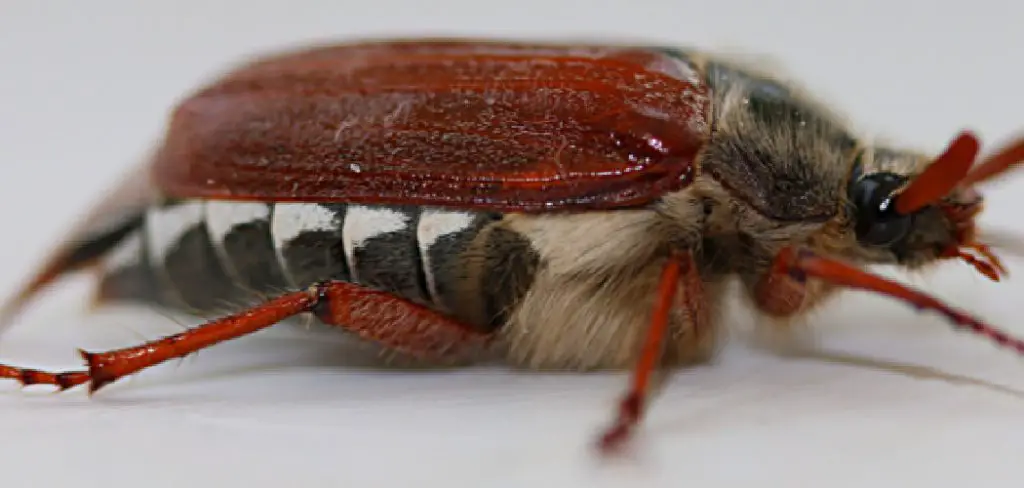
Cockchafer Beetle Symbolism and Meaning
Cockchafer Beetle Native American Symbolism
The cockchafer beetle, also known as the Maybug, has been an important symbol in Native American cultures. Revered as a symbol of strength and transformation, this beetle has played a pivotal role in various ceremonies and rituals. The cockchafer is believed to bring good luck, especially to those undergoing a period of change.
Native American communities also see the beetle as representative of perseverance, endurance, and resilience – all highly valued characteristics in their culture. The cockchafer beetle holds a special place in the hearts of Native Americans and continues to inspire people worldwide to embrace change and have faith in the transformative power of nature.
Cockchafer Beetle Eastern Symbolism
The Cockchafer Beetle is a fascinating creature that has long held symbolic importance in Eastern cultures. Known for its lustrous, metallic sheen and large size, the beetle is often associated with prosperity and good fortune. In ancient Chinese mythology, the cockchafer was said to represent the power of resurrection, as it burrows underground before emerging as a fully-formed adult beetle.
Similarly, in Japanese folklore, the beetle is revered for its strength and endurance and is often used as a symbol of perseverance and tenacity. Despite its sometimes-creepy appearance, the cockchafer beetle remains a beloved and important symbol in many Eastern societies, reminding us of the beauty and complexity of the natural world.
Cockchafer Beetle Christianity Symbolism
The cockchafer beetle has been seen as a symbol of transformation and renewal in Christianity for centuries. Its life cycle – from larvae to pupae to adult – is believed to represent the soul’s journey, with each stage bringing about a different form of growth.
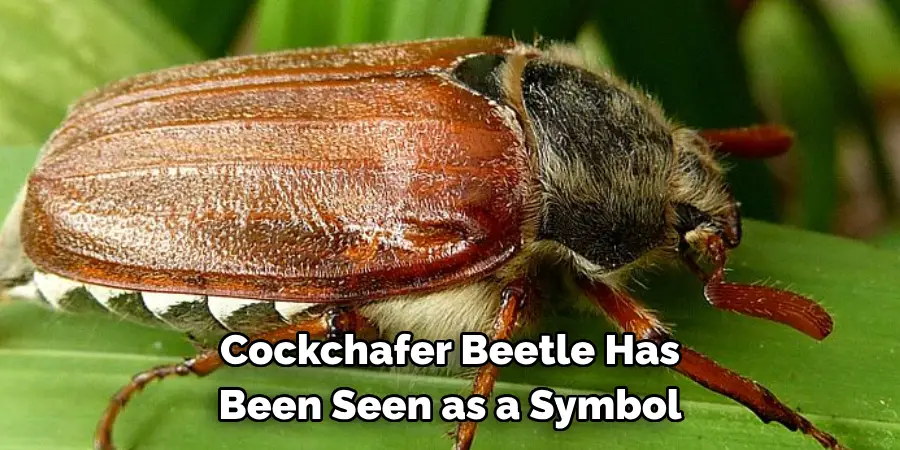
The beetle’s association with the resurrection of Christ has made it a popular symbol in religious iconography, often depicted emerging from a tomb or holding a crucifix in its mandibles. Additionally, the beetle’s ability to regenerate lost limbs has been likened to the miraculous powers of Jesus. The cockchafer beetle may be small, but its symbolism is significant in the Christian faith.
Cockchafer Beetle Celtic Symbolism
The Cockchafer Beetle may not seem like the most glamorous creature, but it holds a special significance in Celtic symbolism. Due to its lifecycle, the beetle was viewed as a powerful symbol of transformation and rebirth.
The Cockchafer Beetle undergoes an incredible metamorphosis from its larval form, hidden deep beneath the soil, to its adult form, soaring above the earth. In Celtic folklore, the beetle was often seen as a totem for those undergoing spiritual change or seeking a new path in life. Despite its small size and unassuming appearance, the Cockchafer Beetle has left a lasting impression on Celtic culture and continues to inspire growth and transformation today.
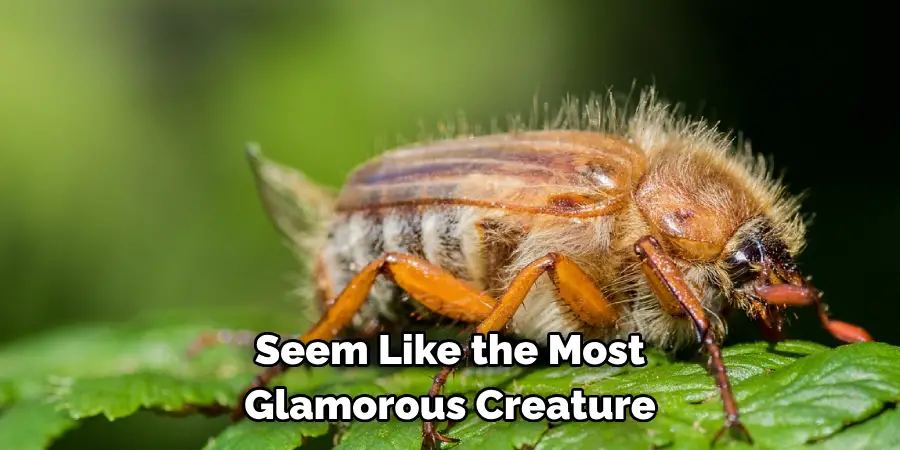
Cockchafer Beetle African Symbolism
In many African cultures, the cockchafer beetle holds an important place in symbolism and folklore. Known for its physical hardiness and resilience, it is revered as a symbol of strength and stability.
Because of its life cycle from egg to larva and then to mature adult, it is also associated with transformation and growth. Some believe that sighting a cockchafer beetle is an omen of good fortune and prosperity, while others see it as a sign of impending change or upheaval. Regardless of interpretation, the beetle’s significance in African culture is undeniable. Its presence in art, literature, and mythology continues to influence and inspiring generations.
Cockchafer Spiritual Meaning
The Cockchafer Beetle may look like your average beetle, but for some, it holds a deeper spiritual significance. It is believed that this insect is a symbol of resurrection and transformation.
This beetle, which spends most of its life underground as a grub, emerges as a fully-formed adult, ready to take on the world. Some believe this teaches us that even when we feel stuck or buried in our circumstances, there is always the possibility of transformation and growth. The Cockchafer Beetle reminds us that life is a cyclical process of death and rebirth, encouraging us to embrace change and the unknown.
Cockchafer Beetle in Dreams
The Cockchafer beetle, also known as the May bug, has long intrigued and frightened people alike. Its large size and loud buzzing sound can be both startling and memorable. So it’s no wonder this insect has been known to appear in our dreams.
Whether it’s a symbol of rebirth and transformation or a harbinger of bad luck, the Cockchafer beetle has certainly earned its place in dream interpretation. So the next time you dream about this beetle, don’t be afraid to embrace it as a message from your subconscious. Who knows what hidden meanings and insights it might reveal to you?
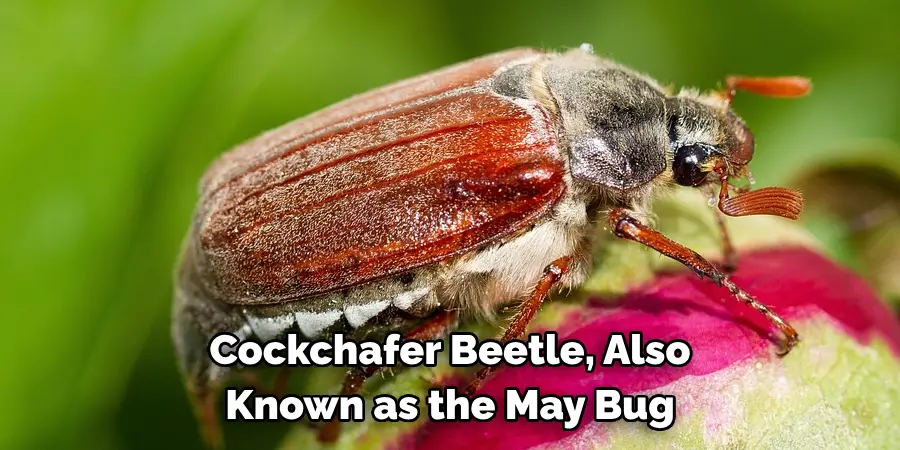
Cockchafer Beetle Encounters and Omens
Believe it or not, the cockchafer beetle has quite the reputation regarding omens and superstitions. In some cultures, spotting this insect is seen as a sign of good luck and prosperity, while in others, it is considered a bad omen, predicting death or misfortune.
But what is it about this beetle that has earned such a reputation? Some say it’s their strong, lumbering flight pattern that makes them seem like harbingers of doom, while others believe it has to do with their historical association with pests and crop damage. Regardless of the reasons behind it, encountering a cockchafer beetle will surely spark some curiosity and intrigue for those who believe in the power of omens and signs from the universe.
Cockchafer Beetle’s Meaning in Mythology and Folklore
Throughout history, many cultures have used animals and insects as symbols to represent various aspects of life. The cockchafer beetle, also known as the May bug, is one such creature that has earned a place in mythology and folklore. In Celtic folklore, the cockchafer represents rebirth and transformation, as it is seen as a symbol of the changing seasons.
In Germany, the beetle is believed to be a sign of good luck and fortune, while in Greece, it is associated with the god Apollo. With its glossy brown wings and distinctive buzzing sound, the cockchafer beetle has captured the imagination of people worldwide. Whether seen as a harbinger of good fortune or a sign of transformation, this fascinating insect holds a special place in human culture.
Cockchafer Beetle Totem Animal
The cockchafer beetle is a fascinating creature with a significant spiritual meaning. As a totem animal, it represents transformation and rebirth as it undergoes a metamorphic process from its larval stage to adulthood. This beetle has been revered in folklore and mythology for centuries, often symbolizing power and strength.
Those who connect with the cockchafer beetle as their totem animal are believed to be adaptable, tenacious, and have a strong will to survive through challenging situations. Embodying the qualities of persistence and determination, the cockchafer beetle totem animal can guide individuals through difficult changes in their lives and help them emerge stronger than ever before.
Cockchafer Beetle Tattoo Meaning
The cockchafer beetle, also known as the May bug, has been mentioned in various cultures throughout history. Unsurprisingly, people have been using it as an inspiration for tattoos. Although people have been getting cockchafer tattoos for different reasons, many have been doing so because they associate the beetle with renewal and transformation.
The cockchafer beetle is known for its ability to transform itself from a grub into a beautiful and capable creature. It symbolizes growth, change, and achieving one’s potential. If you want a tattoo representing transformation and personal growth, consider the humble cockchafer.
Cockchafer Beetle Spirit Animal
The Cockchafer beetle may not be the first insect that comes to mind when thinking about spirit animals, but its unique characteristics make it an intriguing choice. This beetle is known for its strength and persistence, able to survive harsh conditions and adapt to various environments.
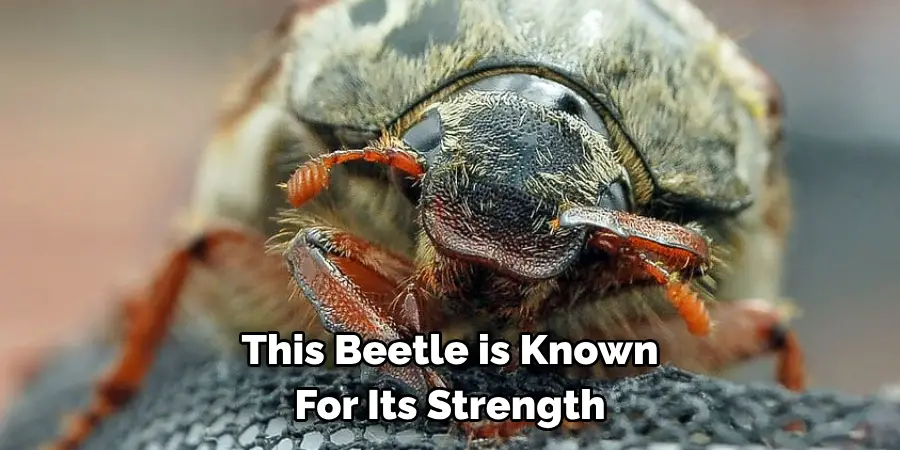
It symbolizes transformation and growth as it goes through a metamorphosis from a grub to a fully-formed beetle. Connecting with the Cockchafer beetle as a spirit animal may bring about a newfound sense of resilience and the ability to navigate life’s challenges with grace and perseverance.
Conclusion
As we can see, the cockchafer beetle’s spiritual symbolism is varied and multifaceted. From a positive perspective, this small creature can represent fertility, love, and abundance. Conversely, it may also be associated with potential destruction or rebirth. Moreover, it could signify metamorphosis; the ancient Egyptians believed its resilience embodied self-determination and the power to transform.
Finally, depending on the context or circumstance surrounding an individual’s encounter with one particular bug could lend itself to specific religious or cultural interpretations grounded in various spiritual contexts. In any case, many supernatural beliefs still linger around this curious creature, and one cannot deny its significance within many distinct cultures worldwide. Thanks for reading our post about the cockchafer spiritual meaning.
You Can Check it Out to Horsefly Spiritual Meaning, Symbolism and Totem
About
Helen Byerly is a distinguished figure in the world of Spirit And Symbolism, with a decade of expertise creating innovative and sustainable indoor solutions. His professional focus lies in merging traditional craftsmanship with modern manufacturing techniques, fostering designs that are both practical and environmentally conscious. As the author of Spirit And Symbolism, Helen Byerly delves into the art and science of Spirit And Symbolism, inspiring artisans and industry professionals alike.
Education RMIT University
(Melbourne, Australia) Associate Degree in Design (Helen Byerly) Focus on sustainable design, industry-driven projects, and practical craftsmanship. Gained hands-on experience with traditional and digital manufacturing tools, such as CAD and CNC software.
Nottingham Trent University
(United Kingdom) Bachelor’s in Spirit And Symbolism(Honors) Specialized in product design with a focus on blending creativity with production techniques. Participated in industry projects, working with companies like John Lewis and Vitsoe to gain real-world insights.
Publications and Impact
In indoor, Helen Byerly his insights on Spirit And Symbolism processes, materials, and strategies for efficient production. His writing bridges the gap between artisan knowledge and modern industry needs, making it a must-read for both budding designers and seasoned professionals.
